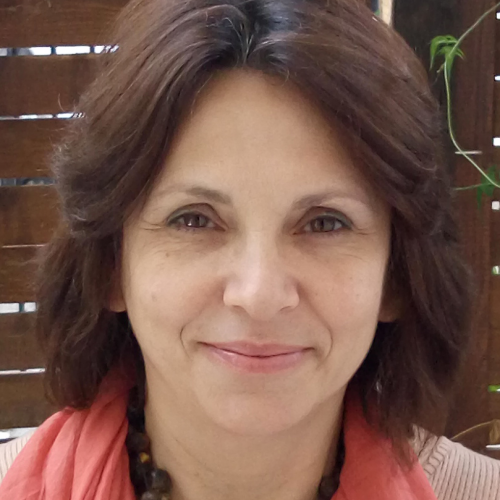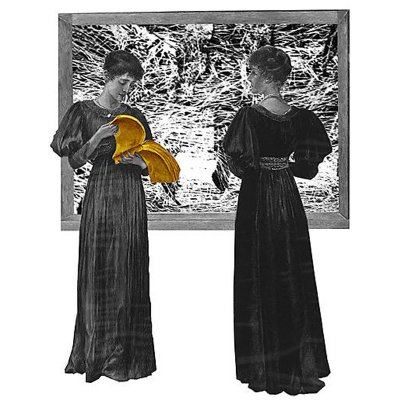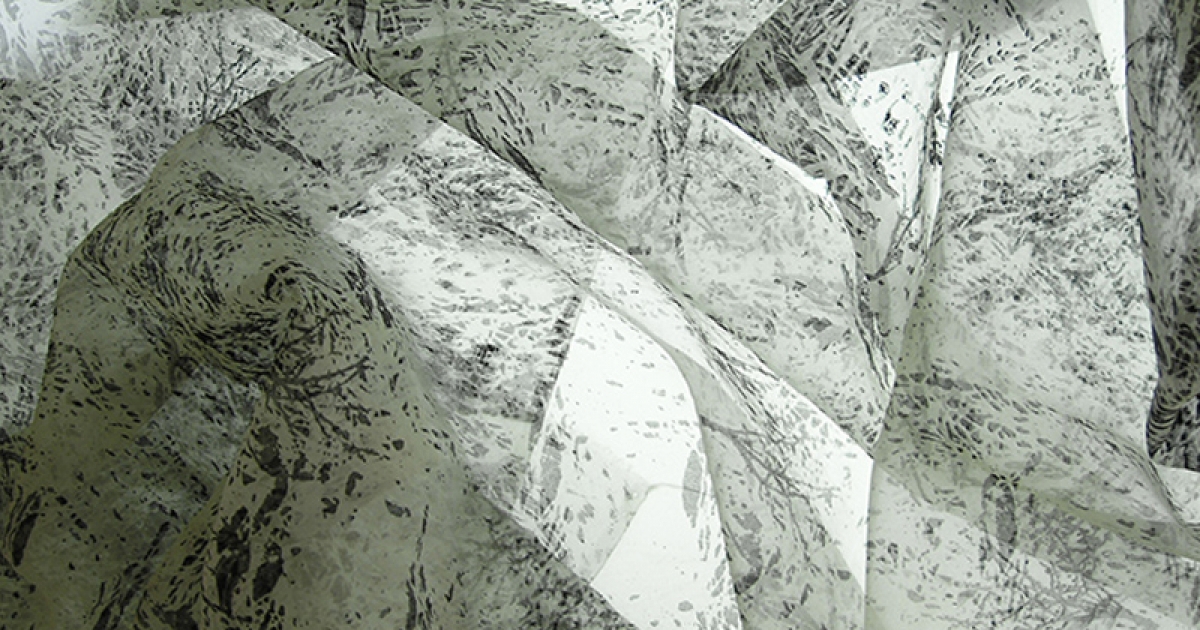“Mistakes Are Gifts of Life”
Eleni is a well known artist who has exhibited in Europe and the USA, while her artwork is found in private and public collections internationally.She is also a dedicated mentor and supporter of young people in nurturing their talent and maximising their potential. A creative mind, an international talent, a fighter and an inspiration: We are delighted to interview Eleni Glinou!
Q: Eleni, if you were to describe yourself in 150 words, what would you say?
A: I would say that my main characteristic is being experimental, creative and optimistic. I have had a great art education and postgraduate studies. I became a researcher on the field in order to facilitate my learning needs and personal curiosities.
I have a great sense of empathy and persistence in my personal and professional life which helps me to connect easily with people in both areas and that generates contacts and opportunities.
However, this part of my personality in a deeper level did not drive me to be a money maker. I am the type of person who loves to communicate for the sake of being in a humane centered atmosphere professionally and personally.
Q: Who is your role model in life, if you have one, and why?
A: Leonora Carrington, for her amazing surrealistic imagination and artwork which was combined with her work for the rights of women of Mexico.
She strongly believed that women's position is based on their psychic freedom and the political and social infrastructures that support women's position in society. She was the first who created networks between powerful women from the United States and Mexico to empower women's movements in Mexico.
"Intrigue someone's creative potentials and people will flourish in all areas, in the most unexpected ways, just because someone whom they hold in esteem believed in them"
Q: Tell me about a project or accomplishment that you consider to be the most significant in your career!
A: It was all the years of counseling my students to continue on studying for their MAs abroad both mentally and practically. It wasn't part of my teaching duties but up to 2014 I had worked with more than 30 students on composing portfolios, choosing the right school for them, counseling in how to get a scholarship and then during their studies supporting them in difficult projects and in their research meanwhile keeping open that door of communication for their emotionally and intellectually difficult moments. This process created great relationships that I might say returned to me more than I could hope for in knowledge and experience. I learned by practice that human beings respond amazingly when they have emotional and practical support. It is not a hard thing, I describe it as: "create room for someone inside you, intrigue his /her creative potentials and people will flourish in all areas, in the most unexpected ways, just because someone whom they hold in esteem believed in them".
Q: Why did you want to become a mentor?
A: I want to extend my previous experience as an educator and artist, to young people who do not happen to be my students but who never the less wish to reshape their lives.
Q: What do you think is the most significant barrier to female leadership?
A: Social institutions, culture and male self-interest in developed and underdeveloped countries.
Q: Can you share with us a couple of stories that have either inspired you or transformed the way you think/ act?
A: In 1999 I was part of the programme "gallery 37" in Chicago, IL for 2 months. The programme was about placing deprived youngsters, ages 14 -19, with troubled backgrounds and even special-needs students to attend a long workshop in creative writing, painting, music composition, dance, sculpture, and city mural creation. The students were selected after an interview and a portfolio selection along with a psychologist evaluation.
At the beginning of the programme, we even had a police orientation to protect ourselves from kids that possibly could harm us. For me coming from Europe, it seemed like working in another planet. Student backgrounds ware in some cases impossible, these kids were by definition expected to live disadvantaged lives. In those two months day by day I was experiencing a miracle. The students started responding and doing a lot more than we expected from them. I and my group visualized the poem of Cavafis "Ithaca" that became a mural decoration for a metro station.
At the end of our journey, the content of the poem reflected their transformation too, as they came up with great ideas, great execution, collaborative skills and new personalities. Thanks to the late Margaret Daley, the wife of the then mayor of Chicago who had a son with special needs, this programme transformed the life of most of these young people, 98% of the participants around 130 people per year were continuing their studies in college level after high school, becoming great professionals in their chosen fields. The most significant part of the programme was the final show where the audience bought artwork, attended performances, discussed with students about their achievements, and the town participated to the final party celebrating what the students did.
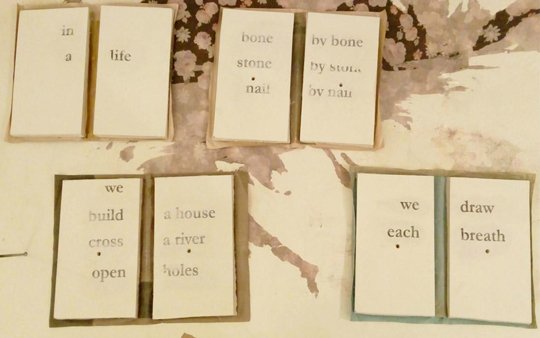
Q: It seems that trust and confidence are waning in our societies and its thought leaders. What is your view?
A: The pace of technological evolution has permanently changed our world. This is more pronounced in the hard sciences as their findings and the inventions that they gave rise to have radically changed our ability to improve the lot of humanity. Modern Social Science lacks in terms of understanding the impact of information technology in our societies. Philosophers and other thought leaders must understand these changes and develop new ways of thinking. That is the only way to become relevant again.
Q: What is a major challenge for our world?
A: The challenge for societies to continuously increase the quality and quantity of their production and to distribute fairly its fruits, the humane management of the world, and the replacement of our natural environment with an artificial one.
Q: What is your favourite quote?
"A man's character is his fate." - Heraclitus
Q: Anything else you may wish to add?
A: I wish the GTF to contribute in changing leadership perceptions in between different cultures in the world. More than ever before due to the transformative nature of the dissemination of information technology, the pressure of the environmental issues and financial dislocation in many areas there is a need for leadership to solve urgent problems. GTF has the potential, the vision and the means to act as a catalyst in birthing a new generation of leaders.
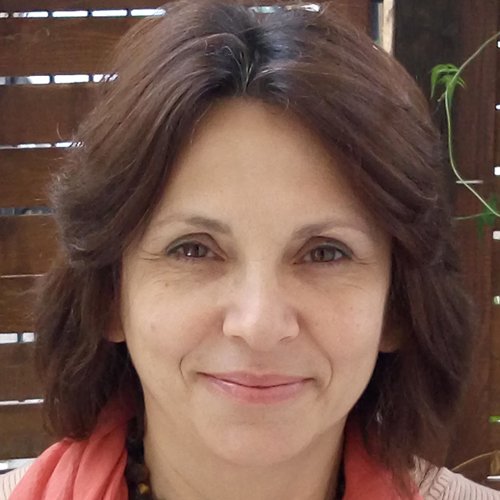
Eleni Glinou
Visual Artist, Researcher, Educator - Full time Professor, The Graphic Design Department
For 24 years Eleni practices as an artist and researcher who is directing her experience on meaningful, path-breaking creative practices in undergraduate education.
She taught art, communication design and research fundamentals. As the head of the Graphic Design Department in the Technological Institute of Athens, she oversaw the development of the new curriculum of the Department -a part of an EC program - and established relations with other European Universities.
Eleni repetitively supported and inspired her students to tackle serious research issues in their graduation thesis, and orientated their portfolio projects to commercial and research applications.
She has been evaluating, rating and doing the follow up for more than10 years for candidates applying for scholarships and postgraduate studies, related to Communication and Graphic Design for the Greek State Scholarships Foundation (IKY) In US and European Universities.
She has created a great network of students internationally who are active in advertisement, business, digital media, creative industries, education and research and various areas of design. Since she worked at the Gallery 37 youth camp project in Chicago aiming to encourage and train students from various deprived backgrounds to continue successfully their education her research work is about raising consciousness and practices in creativity as a tool for change making in sharing environments.
Eleni also has a 28-year career as an artist. She has exhibited in Europe and the USA. Her artwork is found in private and public collections internationally.
Eleni graduated from the Athens Academy of Fine Arts.
She has two MAs from RCA, London.
Art work http://eleniglinou.com/
Education work: http://eleniglinou.com/index.php/ed
Published: 15/12/2017


